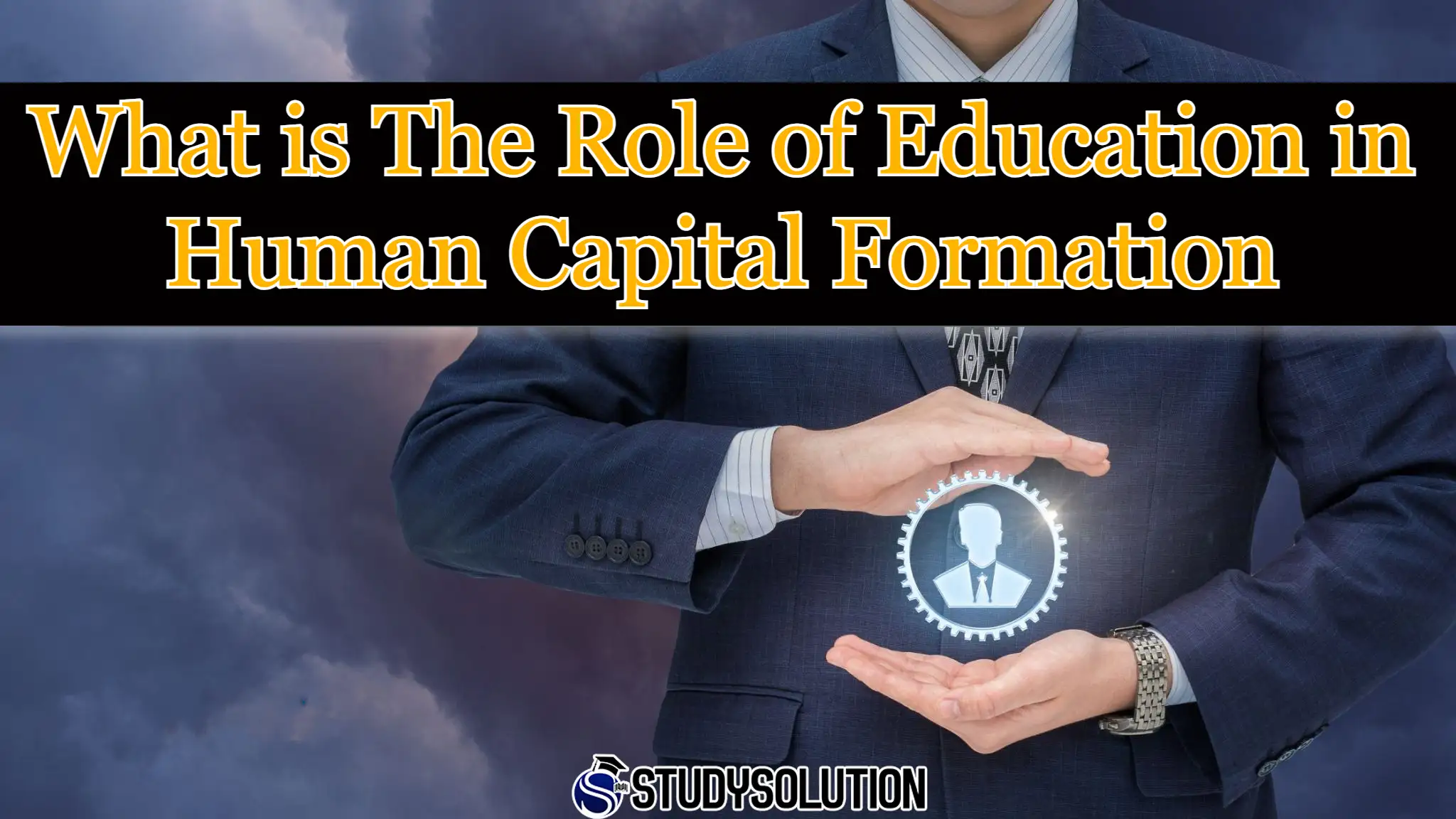Table of Contents
What is The Role of Education in Human Capital Formation
Human capital refers to studying and evaluating labor workforce capabilities and quality education that impact productivity and earning potential within an economic system.
Gross capital measures human capital, while national educational standards determine its formation – making education one of the cornerstones for creating human capital formation. The importance of education can not be overemphasized.
Through this post, you’ll discover why education is a significant element of human capital creation. Education provides an effective method to increase worker capabilities across an entire nation.
At the same time, its expenses versus returns can make education a worthwhile investment – measuring human capital development across countries as a measurement. Furthermore, its significance cannot be discounted; this blog post will investigate education’s role in creating human capital formation and its importance in society.
Human Capital Is Essential Human capital immensely and significantly affects any nation’s economy.
Employers desire solid human capital; therefore, having such employees could help mold careers and solve unemployment issues.
People with excellent human capital could discover new employment possibilities by improving the value of their work, often by engaging in highly innovative or skilled jobs that offer excellent self-employment opportunities. Human capital allows these workers to fulfill their roles efficiently.
Enhancing Productivity and Economy Human resource development improves any nation’s economy, contributing significantly to productivity gains and continued economic expansion. An educated, skilled, committed workforce can increase output significantly while contributing to its rapid growth.
Reduce Skilled Migration through Human Capital Investment Globalization has contributed to increased skilled worker migration from their native nations into countries that offer them better incomes, which hurts national development by depleting key personnel and workforce members from home countries. Improving human capital could lower migration figures.
Education’s Importance In Human Capital Formation
Regarding human civilization’s growth and development, education plays an essential part. Education connects directly to progress for humanity and society and spreads knowledge in multiple forms.
Businesses tend to prefer hiring professional and skilled personnel over unqualified employees as the salaries for experienced staff are typically much higher; qualified employees also bring back economic benefits to a nation than non-skilled ones.
Here are a few ways that education can contribute to building human capital:
Education plays a vital role in shaping humankind. It teaches us compassion and show respect towards others and ourselves.
Education is one of the cornerstones of economic success and enriches lives by understanding various subjects. Education offers us all a chance to acquire knowledge to aid our development.
- An educated society always stays ahead and remains more progressive than those with lower educational standards, improving capitalist quality while raising nations’ income levels and strengthening government officials’ effectiveness.
- Education provides students the chance to expand their cultural heritage.
- Education can serve as an ally in shaping young minds across a nation – offering new ideas, perspectives, and hopes for creating a more progressive society. Education also shapes their thoughts and dreams for a better tomorrow.
- Education is essential in both individual development and society’s overall well-being. Education’s human capital contributions are vital in creating economic progress within countries.
- Human capital is one of the critical determinants of economic development in a nation.
- Education plays a crucial role in improving capital quality. The government must emphasize increasing human capital quality to expand economic systems and foster growth. That is why countries prioritizing spending money on education and supporting human capital development tend to outshine those who don’t invest as heavily.
- Education offers government and individual benefits; governments gain a highly skilled workforce, while individuals benefit from better lifestyle options and lifestyle management through learning.
- Education also assists individuals in developing human capital that will give them the most excellent possible life and working experiences.
Human resources from sectors like health, administration, and research play an essential part in society’s successful development. Countries that invest heavily in developing their human capital in these critical areas see much faster and healthier growth; quality education plays a significant role in producing qualified personnel for these essential industries.
People that make up a nation’s population are the cornerstones of its development. Human capital controls all assets within that capital; an individual with highly developed, imaginative education and high-tech capabilities would serve this function best.
Education plays a crucial part in training individuals for professional roles; each worker requires experience to thrive at work successfully; therefore, education serves both objectives.
There is good reason for all scholars to view human capital in any nation as its most excellent resource since it determines development, economic performance, and research and technological progress across countries.
Final Words
Education plays many crucial roles in human capital development and society. Education facilitates social advancement; an educated population can more efficiently support national improvement; its productivity and prosperity increase with greater levels of literacy in its population than with one whose members remain illiterate.
It enhances personal well-being through enriching lives more fully enriched with knowledge; education contributes towards cultivating an educated society as it aids individual progress while at the same time enabling it further through personal enlightenment and informing.
Education is of crucial importance in increasing a country’s gross income and expanding cultural diversity within a nation.

1 comment
[…] What is The Role of Education in Human Capital […]